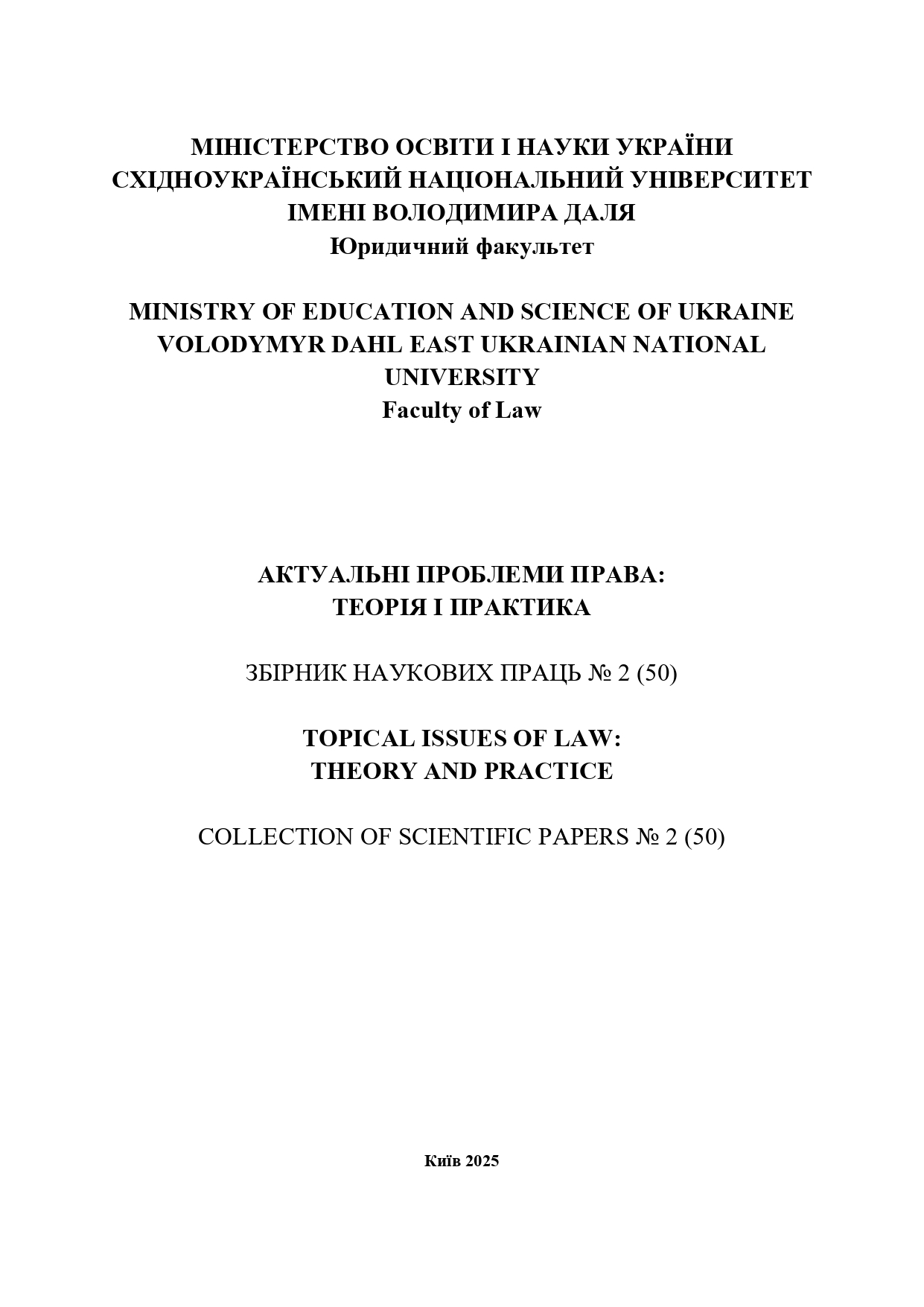ENSURING FAIR WORKING CONDITIONS AND PROTECTING EMPLOYEES’ RIGHTS IN THE DIGITAL ERA: LEGISLATIVE INITIATIVES AND JUDICIAL PRACTICE
DOI:
https://doi.org/10.33216/2218-5461/2025-50-2-118-133Abstract
The article examines the legal regulation and
protection of labor rights amid digital transformation,
analyzed through the lens of legislative initiatives and
judicial practice. The author highlights the
interdisciplinary nature of this issue and the need for
systematic, forward-looking legislative reform. The
study notes that the adaptation of legislation to
technological changes is slow, resulting in a “digital
divide” and heightened risk zones for employees.
Particular focus is given to protecting the rights of gig
employees, especially concerning algorithmic
management and misclassification. Internationally,
the International Labour Organization (ILO) and
European legislation, notably the Platform Work
Directive, play a pivotal role. Despite significant
progress in digitalization, Ukrainian legislation still
requires enhancement to strengthen employees’ labor
rights protection. Analysis of judicial practice in
Ukraine and the European Court of Human Rights
(ECHR) reveals a trend toward safeguarding
employees’ rights, particularly regarding the legality of remote work and personal data confidentiality. However, challenges persist, including limitations in the authority of supervisory bodies. The article underscores that ensuring decent work in the digital era is a fundamental legal task, reflecting the quality of public policy and the maturity of a state’s legal system, necessitating comprehensive labor law reform.
Keywords: digitalization, digital economy, digital platforms, labor rights, rights protection, labor relations, remote work, digital environment, employees, legal regulation, legislative improvement, judicial practice, labor market.

